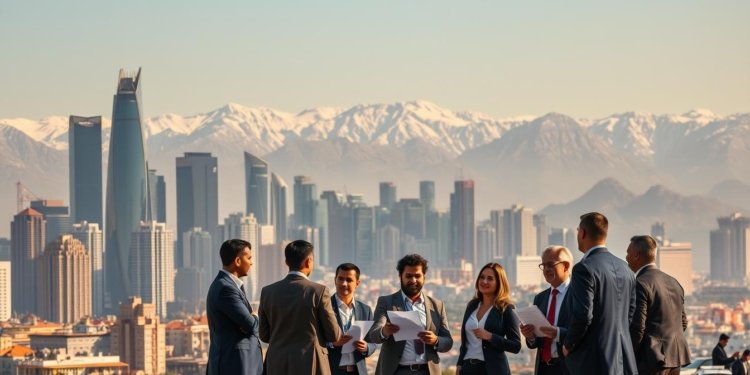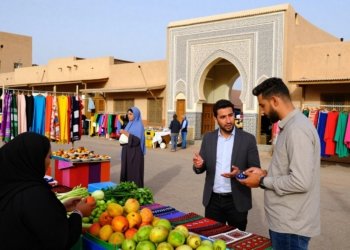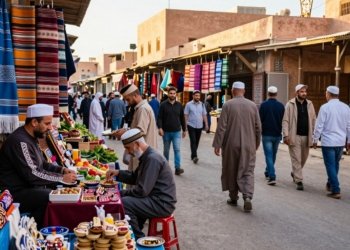Ever wondered why Algeria’s market is attracting global investors despite its complex regulations? With recent reforms like the partial removal of the 51/49 ownership rule, the country is opening doors for foreign investment. But navigating the legal landscape requires careful planning.
Algeria offers diverse opportunities, from renewable energy projects to ICT expansion. The government aims for 40% clean energy by 2030, backed by $120 billion in funding. Meanwhile, sectors like healthcare and housing present untapped potential.
However, challenges like currency fluctuations and bureaucratic delays remain. Partnering with local experts and using U.S. Embassy resources can streamline the registration process. Understanding legal structures—such as joint stock companies or limited liability firms—is crucial for success.
Key Takeaways
- Algeria’s regulatory reforms create new investment prospects.
- Key growth sectors include renewable energy, ICT, and healthcare.
- Legal structures vary from joint stock companies to sole proprietorships.
- Currency risks and bureaucracy require strategic planning.
- U.S. Embassy tools provide valuable market insights.
Understanding the Algerian Business Landscape
Strategic reforms are reshaping Algeria’s investment climate. The partial relaxation of the 51/49 rule and new industrial zones signal progress, though hurdles remain for foreign companies.
Market Opportunities for Foreign Investors
Algeria’s hydrocarbon sector holds 19.8 trillion m³ of shale gas, with U.S. firms leading 45% of operations. Aging infrastructure demands $286 billion in upgrades, creating opportunities for engineering and tech firms.
The ICT sector seeks partners for digitizing government services. With 85% mobile penetration but low home internet usage, e-commerce and fintech solutions are untapped.
Challenges of Doing Business in Algeria
Bureaucracy slows progress—starting a firm takes 22 days on average. All corporate documents require notarization, and the 51/49 rule still applies to strategic sectors like energy and imports.
Currency fluctuations and local content rules (e.g., 30% for pharmaceuticals) add complexity. Partnering with local experts can streamline the register process.
Sectors with High Growth Potential
Renewable energy projects aim for 40% clean power by 2030, backed by $120 billion in funding. Tax breaks in zones like Rouiba boost production of goods for export.
Healthcare and housing also show promise, driven by a young population and urbanization. The market’s demand for quality services outpaces current supply.
How to Start a Business in Algeria
Foreign entrepreneurs eyeing Algeria’s growing economy must first understand its legal frameworks. The process varies by entity type, with distinct capital and compliance rules. Proper planning ensures smoother entry into sectors like trade or construction.
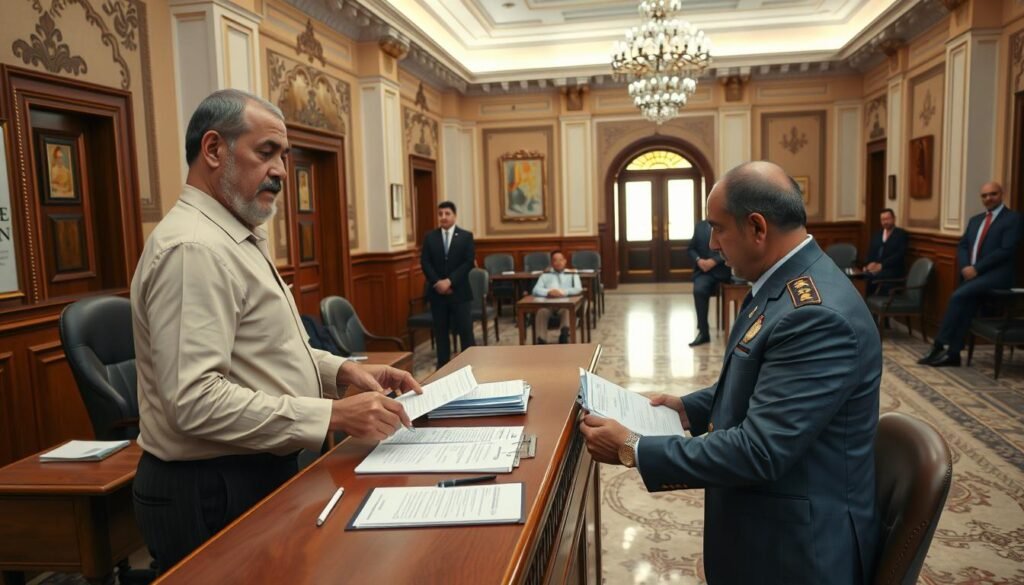
Choosing the Right Business Structure
Algeria offers three primary models for companies. An EURL suits solo investors with 100,000 DZD capital, while SARLs allow multiple partners. Publicly traded joint stock firms (SPAs) require 1–5 million DZD.
Each structure impacts liability and governance. SPAs mandate annual audits, whereas SARLs need simpler taxes filings. Local partners are essential for sectors under the 51/49 rule.
Step-by-Step Registration Process
First, notarize articles association and secure a headquarters lease. The CNRC verifies your company name within 15–25 days. Next, obtain a tax ID (NIF) and enroll in social security.
Deposit minimum capital in approved banks like BADR. Finalize by publishing in the Journal Officiel (~$300 fee). Post-registration, file VAT via the GUOT platform and hold annual meetings.
Key Legal and Financial Considerations
Navigating Algeria’s legal framework demands awareness of ownership caps and tax policies. Foreign investors face a 49% limit in strategic sectors like energy and defense. Recent reforms eased rules elsewhere, but local partners remain essential for compliance.
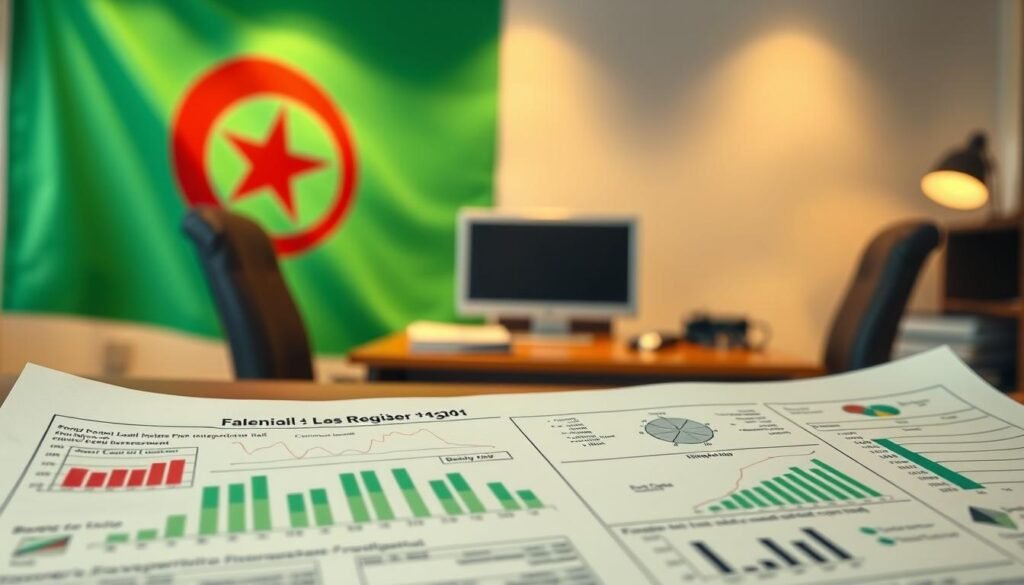
Corporate taxes hit 25%, though exporters enjoy reduced 19% rates. Bi-monthly VAT filings and annual audits are mandatory. Late submissions trigger penalties up to 2 million DZD.
Importers must secure IACE certification for electronics and machinery. The process adds time but ensures adherence to local standards. Non-compliance risks shipment delays or fines.
Disputes often drag 18–24 months in commercial courts. Contracts should include ICC arbitration clauses to bypass bottlenecks. Legal counsel familiar with French-Islamic law hybrids is critical.
U.S. companies must follow FCPA anti-bribery rules. Due diligence tools like Transparency International’s indices help assess risks. Proper documentation retention (10 years) avoids taxes disputes.
Conclusion
Algeria’s evolving business landscape offers promising opportunities for global companies. Strategic sectors like renewable energy and automotive manufacturing are gaining traction under new policies. Local partnerships and government resources can simplify the entry process.
Prepare for a 6-8 month setup time, allocating funds for compliance. Ensure proper documentation, including notarized articles and CNAS enrollment. Staying updated via trade alerts helps navigate regulatory changes.
For those ready to explore, Algeria’s investment potential is worth the effort. Leverage expert guides and verified information to maximize success in this dynamic market.
FAQ
What are the most profitable sectors for investment in Algeria?
Energy, construction, agriculture, and manufacturing offer strong growth potential. The government also encourages foreign investment in technology and infrastructure projects.
What legal structures are available for businesses in Algeria?
Investors can choose between a limited liability company (SARL), joint stock company (SPA), or a branch of a foreign company. Each has different capital and regulatory requirements.
How long does company registration take?
The process typically takes 4-8 weeks, depending on document preparation and approvals from the National Trade Register Center (CNRC).
What is the minimum capital required for a joint stock company?
An SPA requires at least 10 million DZD (approx. ,000), while an SARL needs 100,000 DZD (approx. 0).
Can foreigners fully own a business in Algeria?
Yes, but some sectors restrict foreign ownership. A local partner may be required for certain industries like retail and trade.
What taxes apply to businesses in Algeria?
Corporate tax is 26%, VAT is 19%, and social security contributions vary. Special tax incentives exist for priority sectors.
Is it mandatory to have a local bank account?
Yes. Companies must open an account with an Algerian bank to complete registration and handle financial transactions.
Are there restrictions on importing goods?
Some products require licenses, and customs duties apply. The government promotes local production, so imports face periodic regulations.

